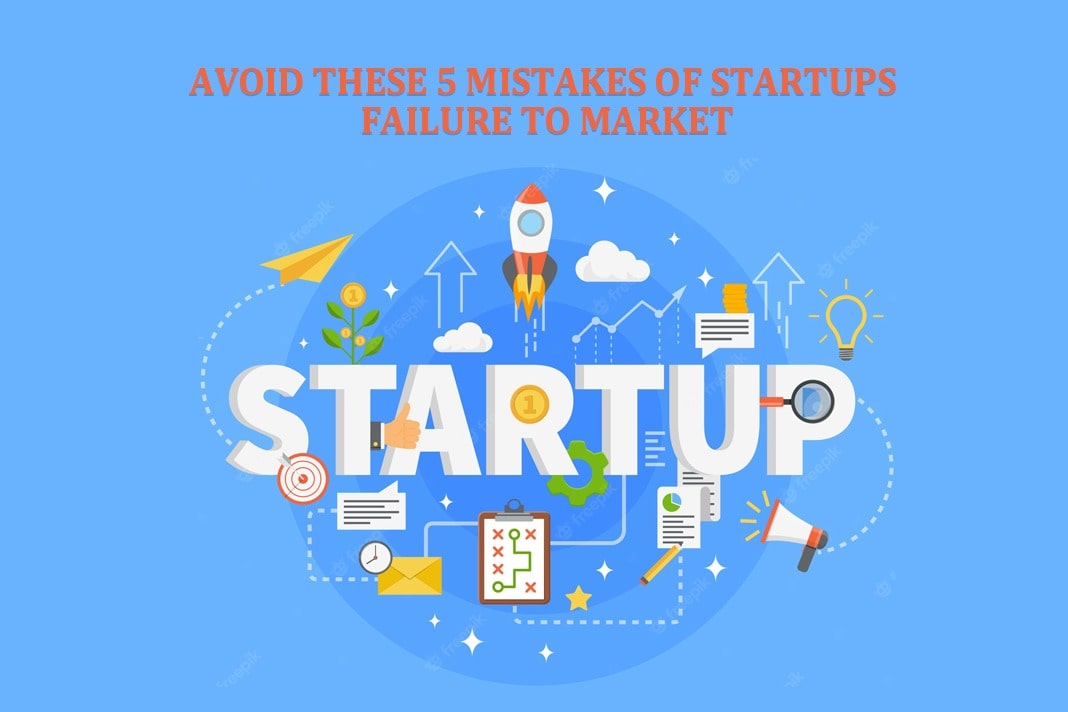Avoid these Five Mistakes of Startups – Failure to Market
Why do Startups fail? Is there a recipe for success for your new business venture? How can you eliminate market failure?
Unfortunately no. There is no way to guarantee success for your startup.
While there may be advanced functionality, for instance, request a quote for WooCommerce that you can use to help you on your way to success, it’s also good to know what to avoid in the beginning.
An innovative idea that will change the market will keep you from climbing the ladder of success, especially if you run your business alone. And market failure is hard, debilitating, painful, and embarrassing.
But let’s look at it from the other side. Market failure is also an opportunity to learn from the big mistakes that many entrepreneurs make. Today we will discuss some common pitfalls for new entrepreneurs so you can avoid them.
- Fail to develop a marketing strategy
Going to the market with a newborn is like being alone in a dark room; you know you are there, but no one else knows. Some startups use so-called matches to highlight their progress toward increasing revenue. They do short-term promotional work and spend thousands of dollars on a trendy website, but the games burn out quickly.
Plan your marketing carefully before your startup goes to market. Do thorough research and see which promotions are necessary and which are not. Effective online, offline, and social media marketing strategies lead to higher performance and fewer surprises along the way for your start. Also, using the correct social media links can help ease the pain.
- Many sales managers = More sales
This mistake is a particular case of lack of attention and probably the most dangerous. The simple idea is that if you bring in more salespeople, you will increase your sales. This may be true in an established company, but it’s a big NO for startups.
Don’t hire a second (or third, or fourth) sales manager unless you have a good sales process, one you can use. Two Sales managers are expensive, not only because of their salary but because of the internal resources required to take care of themselves and their customers.
A sales manager is just a commercial airline pilot. This aircraft will only be flown with the help of technicians, maintenance personnel, and controllers. It’s the same with sales – a successful sale ends when the customer pays and is happy with the product.
For a successful sale, you need a sales team: pre-sales, sales manager (or account manager), customer support (or customer success), and a sales manager to organize the group. In addition, do not forget that many leaders require a lot of R&D during the sale because most of the deal’s conditions depend on something new that needs to be developed.
So building a sales team should also be a focus. It is better to create a single high-level sales team than to hire multiple sales managers who will compete for internal resources.

- Trying too many things at once
You have a lot of trouble marketing a startup, but your biggest enemy is a distraction. There are many exciting opportunities, and you are in desperate need of income. Why not use all possible ways to get it? Because you can’t do it right.
Trying to do all these things is only half done, which is a sure step toward failure. Instead, focus on one thing you can improve every day. It may be getting information from customers or creating content for different purposes in the early days. Finally, it can be distributed, partnership, or investment.
Once you have achieved product-to-market fit, success is usually achieved by effectively marketing your product or service through one channel while gaining traction and building on another. Progress comes from accumulating one thing at a time, not from trying to boil the ocean.
For example, you can get support by email. You write to continue good email marketing and then add traditional social media (posts and comments). Then you cover the partnership on top of that.
- Lack of Emergency Funds
You have dreams. You have goals. And you want to start early. But be careful. Don’t spend it like there’s any tomorrow.
Many new businesses fail to properly manage their finances by investing in and controlling different parts of their business. And so, these financial failures often result in financial losses that require savings.
Try to understand your business financing options and check your monthly balance. This will help you determine how long your business will last with your current finances. And don’t forget to leave some money in reserve for unexpected expenses.
Goal Investor offers to create a personal savings account to cover your daily expenses and one for your business. But how much should you put aside? This is a difficult question. As with many other questions in life, the answer is “it depends.”
It depends on your needs and your business expenses. Most financial advisors recommend a minimum of 3 months, while some recommend up to a year.
- Partnering with the wrong investors
An essential piece of information entrepreneurs should know before starting a business is that their investors are more than just financial supporters. The first set of investors in a company will make or break it. These people believe in the business’s potential without having a proof of concept in front of them. Once businesses receive seed funding, they will partner with investors looking to grow and sustain the business.
Takeaway
Do some research on business success stories to get some valuable business advice. Take every opportunity to learn, and don’t hesitate to ask for help. Because many different things can cause a startup to crash. The best things you can do to avoid this are to maintain a great management team and prove that the market needs your product. Throughout the lifecycle of your startup, you should also aim for a complete customer opinion analysis (VOC) and SWOT analysis to better understand your market and its customers.
